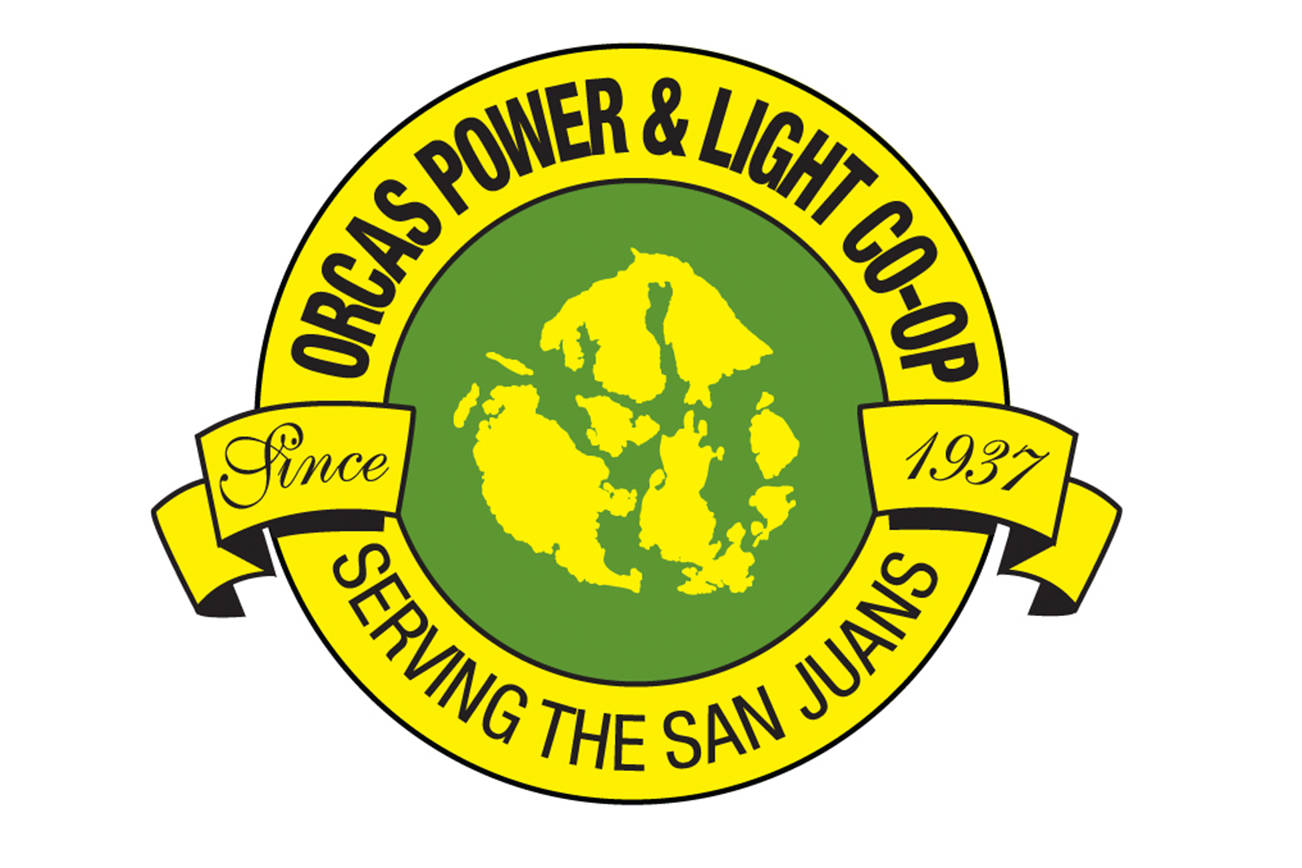Submitted by Orcas Power and Light Cooperative
The Washington State Ferries long-range plan for deploying electric ferries puts the San Juan routes last on the list. Why lose decades in our efforts to protect the Salish Sea – and all of the species who depend on it? Orcas Power and Light Cooperative is calling for WSF to prioritize getting the new, cleaner, quieter and super-efficient electric ferries to the San Juan Islands route first.
Carbon pollution impacts our sensitive marine environment through acidification, warming air and water temperatures and changes to shoreline health and levels. Ferries make up 63 percent of the carbon emissions from the Washington State Transportation Fleet. The number of species that are affected in the Salish Sea area of the Puget Sound is remarkably concentrated and diverse: humans, Orcas whales, salmon, oysters, clams, bait fish, nearshore eelgrass and kelp beds, birds, otters, seals, sea lions, invertebrates and myriad other fish and mammal species.
In addition to carbon (and other contaminants) pollution, vessel noise has been identified as a major barrier to the health and survival of the Southern resident orcas. Gov. Jay Inslee’s 2019-2021 budget initiative states: “The frequent daily transits of Washington State Ferries are a significant contributor to underwater noise in Puget Sound.”
OPALCO is ready and willing to help WSDOT meet the needs of electric ferries on the San Juan Islands routes. In 2019, OPALCO will install the first of many battery energy storage systems which can be utilized to help offset the large peaks that charging electric ferries will incur. OPALCO also brings to the table gigabit fiber and wireless infrastructure throughout the San Juan Islands routes to assist WSF with real-time monitoring and data sharing.
It goes without saying that Inslee is particularly invested in the health and sustainability of our small inland sea and has already allocated significant resources to address the issues that put it, and our resident orca pods in particular, at risk.
“My gratitude goes out to staff of WSDOT Ferries and our local Ferry Advisory Committee,” said OPALCO General Manager Foster Hildreth. “For letting our legislators know that our ferry system is broken and we have to fix it. OPALCO wants to help WSF pilot electric ferries here in the islands! As a co-op, we can support the effort and help shorten the learning curve.”
Adding electric ferries to OPALCO’s system provides a number of benefits: it adds local revenue through new power demand at a time of declining energy usage due to climate change and efficiency gains; and it opens up the potential for a ferry to act as a battery and provide a power source to the islands during extreme emergency situations. Reliable, clean transportation is just as important as power and internet.
Reach out to your elected officials and ask them to encourage the WSF to deploy electric ferries on the San Juan Islands routes first.
It’s not that islanders mind the notion of hand-me-downs boats – islanders are boot-strappers – but the opportunities for significant, measurable results are far too great to ignore. Please help us get the reliable electrified ferry service that is appropriate for our environmentally sensitive environment – before it’s too late.
The complete letter sent by OPALCO to WSDOT Ferries is below and is also online available at https://www.opalco.com/wp-content/uploads/2019/01/Electrify-Ferries_SJI-FIRST.pdf.




